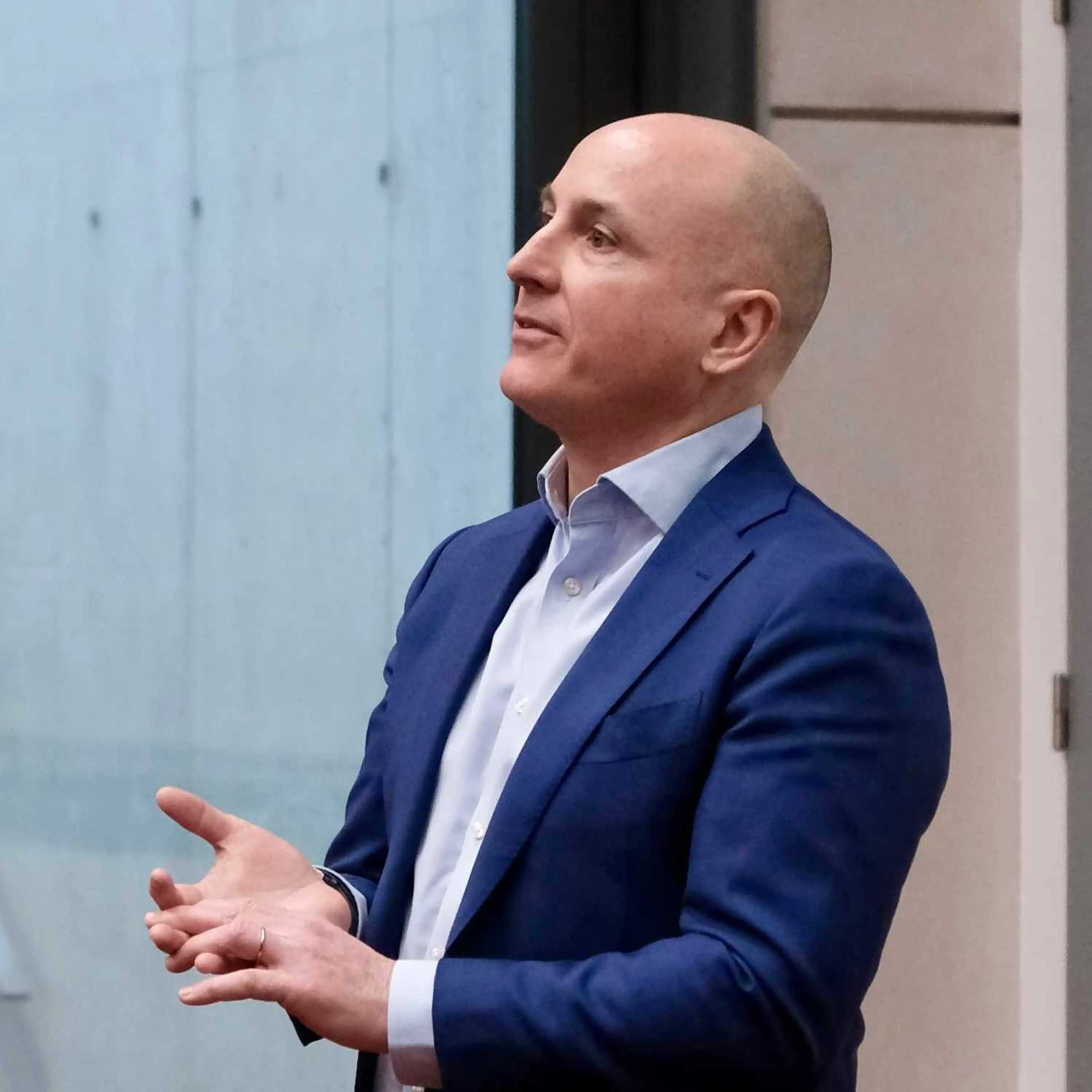This essay is written by Bersant Hobdari, Associate Professor at CBS - Department of International Economics, Government and Business.
Private individual investors – also called retail investors - who comprise a significant portion of the investment landscape, express a growing interest in aligning their portfolios with ESG principles and are increasingly keen on integrating sustainability into their investment philosophies. For instance, Morningstar reports that over $1.5 trillion flowed into sustainable investment funds globally from 2019 to late 2023, with a significant portion of this coming from retail investors leveraging ETFs and mutual funds. The ESG market continues to mature and increase in share of total assets under management. For instance, global ESG assets under management were over $30 trillion in 2022 compared to total value of assets under management worldwide of about $99 trillion.
The retail investor preference towards ESG investing is not confined to specific geographies. Europe leads the ESG movement globally, fueled by retail demand and regulatory support. Yet, other regions also display growing adoption of ESG investing among retail investors. Polls and studies have found that 53% of the Asia-Pacific retail investors ranked ESG as “important” or “very important” while in the U.S. 69% of the retail investors said ESG had become central to their investment process.
However, in seeking to make responsible investment choices retail investors face a complex reality that challenges reconciling their preferences with actual investment behaviors.
Beliefs and preferences for ESG Investing among Retail Investors
One of the primary drivers of retail investors’ interest in ESG investments is the desire to align their investment choices with their personal values. Many individuals want to ensure that their money is working towards a better future, reflecting their beliefs related to sustainability, social justice, and corporate responsibility. By investing in companies with robust ESG practices, retail investors can support businesses that prioritise ethical behavior and positive societal impact.
The preferences of retail investors in ESG investing also tend to reflect generational shifts. Younger investors, particularly Millennials and Gen Z, are often more vocal advocates for sustainable finance, demanding that their portfolios reflect their values and contribute to positive societal change. These investors frequently gravitate towards thematic ESG funds or investment products that target specific sustainability themes, such as renewable energy, gender equality, or community development.
Alongside this preference, another driver of retail investor interest in ESG is the conviction that sustainable and socially responsible businesses are better positioned for long-term success. Retail investors often perceive ESG investing not only as a moral imperative but also as a strategic advantage. Many perceive ESG-focused companies as more innovative and resilient, better equipped to manage emerging risks, including regulatory changes, resource scarcity, and shifting consumer preferences, and more likely to generate competitive financial returns over time.
Overall, retail investors envision a future where their investment choices can contribute to addressing some of the world's most pressing challenges while providing solid returns, leading to a more engaged and purpose-driven investment community.
Challenges to Aligning Preferences with Behavior
Notwithstanding the strong preferences towards ESG investing, the actual allocation of retail investors' portfolios towards sustainable assets remains relatively low. For instance, a 2022 survey by Broadridge Financial Solutions found that retail investors allocated an average of 39% of their portfolios to ESG investments, with Millennials allocating the highest percentage at 46%, compared to 38% for Gen X and 35% for Baby Boomers. Several factors contribute to this misalignment, highlighting the challenges that investors face in aligning their actions with their values.
Lack of awareness and understanding surrounding ESG investing
Many retail investors, despite their interest, often have limited knowledge of how to evaluate ESG criteria or how to integrate these principles into their investment strategies meaningfully. For example, the differences between funds that claim to be "sustainable" can be confusing, as no standardised definitions or metrics exist across the industry. As a result, investors may struggle to identify which funds genuinely adhere to ESG principles and may inadvertently invest in funds that do not align with their values. Enhanced education and clearer information regarding ESG criteria can help empower investors to make more informed choices.
Concerns about potential trade-offs in performance
Despite the growing body of evidence suggesting that ESG investments can yield competitive returns, many retail investors harbor concerns about potential trade-offs in performance. Retail investors often perceive ESG-focused investments as potentially sacrificing returns for ethical considerations, leading to hesitation in committing capital to sustainable funds. The belief that sustainable investing is synonymous with lower returns is a significant deterrent for many investors, particularly those who prioritise short-term financial goals. This sentiment can perpetuate a cycle of skepticism, leading to reduced investments in ESG strategies and a preference for traditional asset classes.
Limited access to sustainable investment products
While the market for ESG-focused funds has expanded, the availability of suitable investment options for retail investors remains inconsistent. Traditional brokerage platforms may not provide ample access to ESG products, limiting retail investors' ability to diversify their portfolios according to their sustainability preferences. Financial advisors might not prioritise ESG investments for their clients, further limiting retail investors’ opportunities to access sustainable investment options.
Behavioral biases influencing decision-making processes
For instance, loss aversion—a bias suggesting that individuals fear losses more than they value gains—can lead investors to shy away from ESG investments if they perceive potential volatility or risk. Similarly, the status quo bias can result in investors continuing with familiar investment habits rather than exploring new alternatives that align with their values. Inertia may prevent retail investors from shifting their capital into more sustainable options, even if they express a desire to do so.
Bridging the Gap
The retail investors' perspective on ESG investments underscores a profound and ongoing shift in the fabric of finance, reflecting a broader societal aspiration towards a future where sustainability and ethical considerations take center stage in the global economy. Several approaches can be adopted to realise the full potential of sustainable investing among retail investors, including enhancing education, improving accessibility, addressing performance misconceptions, and implementing effective behavior-nudging strategies.
CBS plays a pivotal role in bridging the gap between retail investors' preferences and action in ESG investing through several strategic approaches.
On the education side, specialised courses focusing on ESG investing are offered at bachelor, graduate, and post-graduate levels. Retail investors are helped to understand the complexities and potential of sustainable investment strategies, demystify ESG concepts, and gain practical insights into sustainable finance. Through the creation of practical workshops that combine theoretical knowledge with hands-on investment simulation CBS can further help retail investors gain confidence in ESG investing by teaching them how to evaluate ESG metrics, assess company sustainability reports, and make informed investment decisions.
On the research side, CBS is at the forefront of conducting in-depth research analysing ESG investment performance, creating transparent frameworks that help retail investors comprehend sustainable investment potential and risk assessment methodologies. CBS also partners with financial institutions and investment firms to conduct cutting-edge research on ESG performance, helping to develop more transparent and reliable sustainability metrics. These collaborative efforts can provide retail investors with more comprehensive and trustworthy information.
Finally, by conducting research and providing expert insights, CBS aims to shape policy discussions and help create more supportive regulatory frameworks for ESG investing, ultimately making it easier for retail investors to engage with sustainable investment options.



